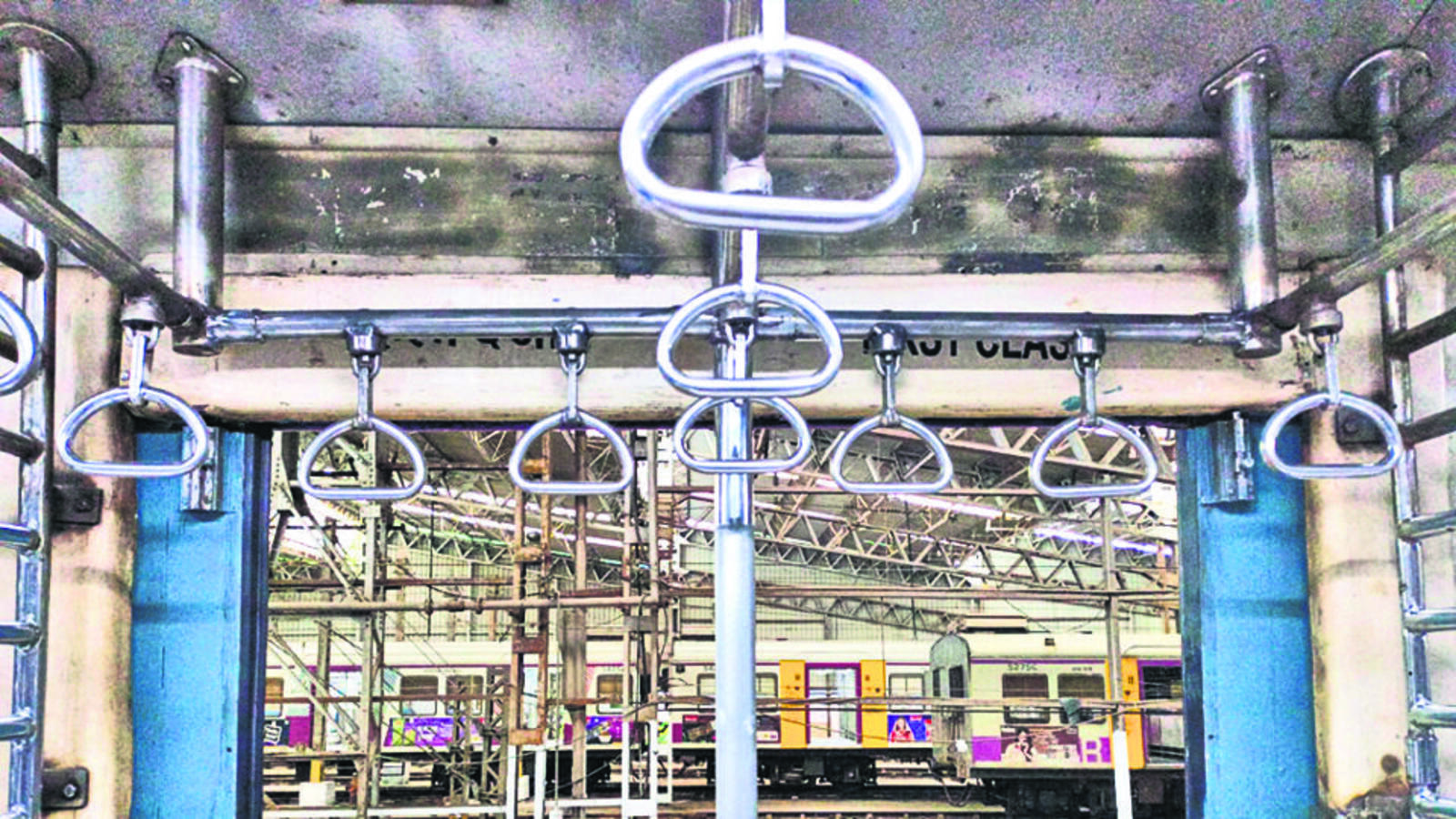Mumbai’s Central Railway has announced a ₹2.4 crore investment to install additional grab handles on suburban train doors—an urgent safety upgrade following the tragic Mumbra incident on June 9 that claimed four lives. This move underscores efforts to protect commuters as new trains roll out and crowd control measures intensify.
Central officials confirmed the grabs will be mounted on horizontal ceiling rods, just inside each door on all 113 Siemens-built trains—Mumbai’s largest suburban fleet. These handles, currently standard on trains by other manufacturers, aim to anchor commuters who cling to footboards during crowded travel.Other critical safety efforts include equipping new train rakes with automatic doors and rigorous ticket inspections. On the night of June 9, overcrowded local trains negotiating a sharp track bend at Mumbra caused several commuters on the footboards to fall, resulting in four deaths and injuring ten. Since then, Central Railway has fast-tracked safety enhancements. Siemens-built trains dating from 2007–08 will undergo retrofit to match current safety standards.Immediately after the tragedy, trials were held at Sanpada workshop, with positive feedback. Each coach door will feature 4–6 additional handles fixed to an added rod—this infrastructure rollout is expected to conclude in two years following tender finalisation.
Concurrently, the Railway Board has mandated that all upcoming suburban rakes be built with automatic door-closing mechanisms to curb footboard travel. Existing trains will also be retrofitted with this gear, signalling a shift towards design features that discourage dangerous commuter behaviours. These hardware upgrades accompany intensified ticket inspections undertaken by Central Railway’s commercial department. On Monday morning, a team of 55 ticket inspectors and seven Railway Protection Force personnel checked travel documents across trains departing from Thane, Titwala, Ambernath, Badlapur and Panvel between 7 am and 10 am. Their efforts caught 106 ticketless passengers—including holders of expired season passes—raising ₹33,575 in fines.The core aim of these checks is to reduce overcrowding and discourage commuters from riding on footboards when inside coaches is full.
Together with safety enhancements, these steps reflect a comprehensive strategy combining engineering, enforcement and commuter education. Officials emphasise the grab handles as a critical life‑saving feature for those stranded on footboards while full toughening of doors remains pending. Railway engineers note that footboard travel typically occurs when commuters board fully occupied trains during peak hours—estimated daily ridership is 3.9–4 million across Central and Harbour lines. While automatic doors will reduce unsafe boardings over time, the handles offer immediate risk reduction for commuters unable to enter coaches. Commuter groups have welcomed the measures but stress vigilance in execution and complementary initiatives. A commuter rights advocate highlighted that handles must be ergonomically designed—secure, high‑contrast and corrosion‑resistant to withstand large volumes of users, avoiding premature wear.
Experts caution against overreliance on hardware fixes. Behavioural interventions—such as platform management, peak‑hour shuttle rakes, and stepped-up awareness drives—are vital for long‑term impact. Central Railway spokesperson explained that public announcements educate commuters on safe travel practices, while station staff are deployed to manage boarding crowding. Financial implications extend beyond ₹2.4 crore. Upgrading all new rolling stock with automatic doors, plus retrofit on existing rakes, will be cost‑intensive—but officials argue safety takes priority. Train manufacture contracts now explicitly oblige suppliers to include automatic doors and anti-footboard features, reinforcing policy change in design standards.
As everyday pressure on Mumbai’s suburban network continues, structural safety upgrades must be integrated with systemic reforms. A railway safety expert notes: “Mumbai’s suburban trains serve millions daily. Tackling footboard fatalities requires engineering controls backed by enforcement and commuter buy‑in.”Additionally, strong editorial and civic pressure is pushing railway authorities to align these upgrades with India’s larger urban equity goals. Climate‑resilient station designs, gender‑friendly access, safe last-mile connectivity and controlled crowds all contribute to a zero-carbon, inclusive urban transport system. The project timeline for handle installation spans two years, with phased rollout across the Siemens fleet. Automatic door retrofits and new rake features are expected within a similar timeframe, as contracts include completion targets. Meanwhile, ticket checks and platform management continue uninterrupted in the short term.
Mumbai’s suburban rail crisis has long been characterised by unsafe travel habits borne of overcrowding and unreliable alternatives. By investing in hardware, oversight, and commuter education, Central Railway is progressing towards safer suburban commutes. Yet, sustaining progress requires sustained execution and transparency—annual audits, technical reviews, and public performance metrics must follow.
Also Read : Mumbra Station Platform Sinks After Water Leak



